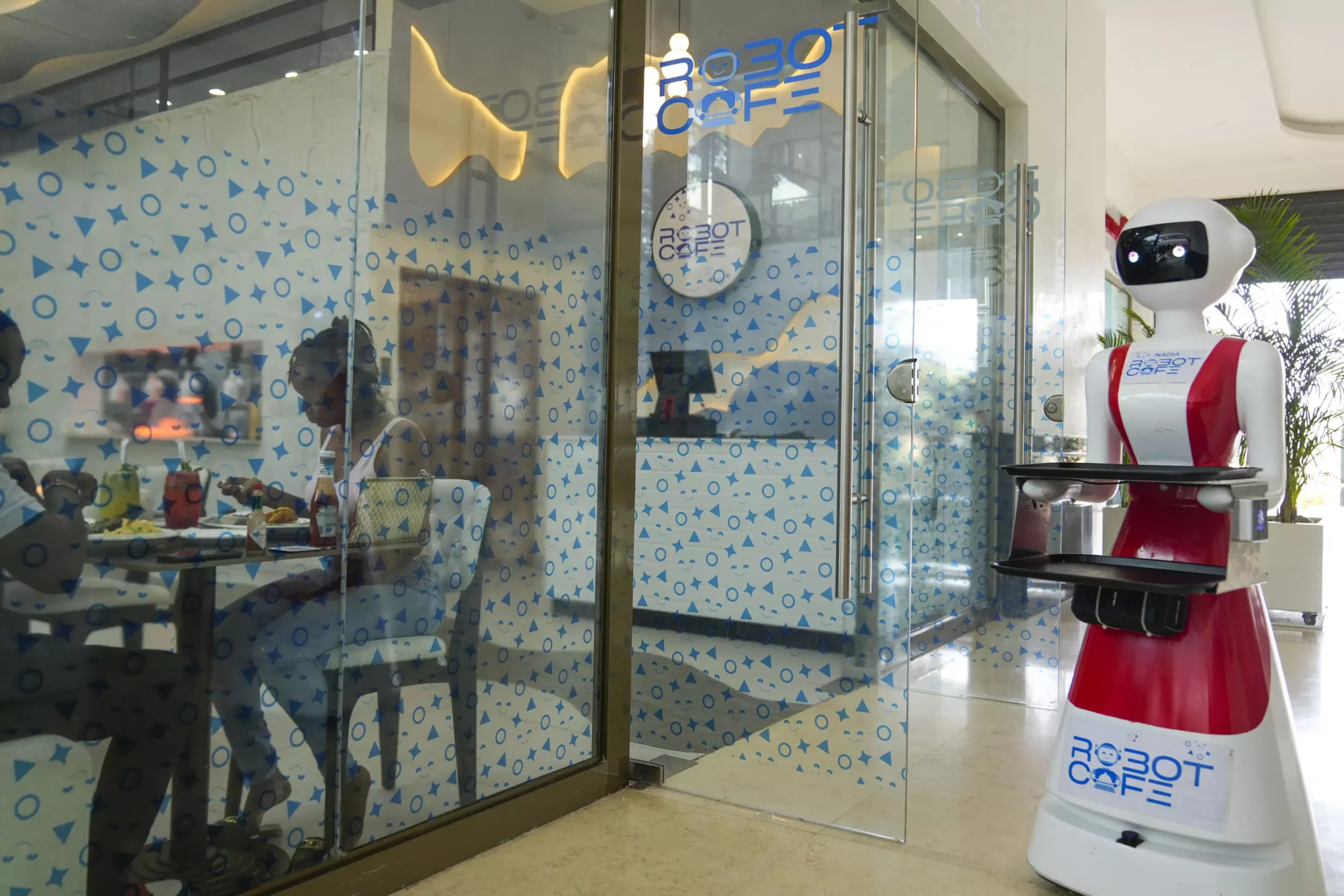The bustling city of Nairobi, known for its vibrant tech industry, has recently seen the introduction of robot service in one of its eateries – the Robot Cafe. The cafe, believed to be the first of its kind in Nairobi and East Africa, features three robots alongside human waiters to serve food and entertain customers. The owner, Mohammed Abbas, made the decision to invest in these robots after experiencing robot service in Asian and European countries. Despite the initial high cost of importing the robots, Abbas states that the investment has been worthwhile as the restaurant attracts curious customers eager to experience robot service firsthand.
Upon entering the Robot Cafe, customers are greeted by the sight of robots gracefully gliding among human waiters, carrying plates of freshly prepared meals on their inbuilt trays. These preprogrammed robots, named Claire, R24, and Nadia, are not designed to engage in full conversations with customers. Instead, they deliver food with simple phrases like “Your order is ready” and “Welcome”. Customers must press an exit button after taking their food from the tray. The robots are controlled by waiters using an application on an iPad, highlighting the blend of technology and human interaction in the cafe’s operations.
While the robots play a significant role in serving food and entertaining customers, human waiters remain essential in the cafe’s daily operations. They interact with customers to take orders, especially for those who prefer not to use the online ordering option. Additionally, human waiters place food on the robot trays and personally deliver drinks to customers. According to the cafe’s manager, John Kariuki, the robots are unable to fully replace human waiters due to their limitations in providing certain services. Despite the growing presence of automation in the hospitality industry, human touch and interaction remain irreplaceable aspects of customer service.
As technology continues to advance, the integration of robots into the hospitality industry raises questions about the future of human labor. Hospitality industry expert Edith Ojwang believes that there is space for both robotic and human service to coexist harmoniously. While some customers may prefer the efficiency and novelty of robotic service, others value the warmth and personal touch provided by human waiters. Ojwang emphasizes that the diverse nature of the hospitality client base allows for a flexible approach to service delivery, where robotic and human elements complement each other rather than compete.
The introduction of robot service in the hospitality industry, as seen in Nairobi’s Robot Cafe, symbolizes a blend of innovation and tradition. While robots bring efficiency and entertainment to the dining experience, human waiters continue to play a crucial role in customer interaction and service customization. The coexistence of robotic and human service reflects the evolving dynamics of the industry, where technology enhances but does not entirely replace human labor. As the hospitality sector navigates the impact of automation, finding a balance between technological advancement and human connection remains key to delivering exceptional service in a rapidly changing landscape.


Leave a Reply